22 February
1511 - Death of Henry, Duke of Cornwall, the fifty-two day-old son of Henry VIII and Catherine of Aragon.1540 – Marie de Guise, consort of James V of Scotland and mother of Mary, Queen of Scots, was crowned in Holyrood Abbey.
1571 – Death of John Bury, translator. He had never recovered from a fall from his horse in August 1570, which had resulted in him breaking a leg. He is known for his “The Godly Advertisement or Good Counsell of the Famous Orator Isocrates”, an English translation of Isocrates' Greek speech Ad demonicum.
23 February
1503 – Burial of Elizabeth of York, Queen Consort of Henry VII and mother of Henry VIII, at Westminster Abbey.1512 – Birth of William Framyngham, scholar and author, at Norwich, Norfolk. Unfortunately, his works are lost, but his friend, Dr John Caius listed seven of his works, which included heroic verse, a poem in pentameters and hexameters, a poem on idolatry and two books of prose.
1525 – Start of the Battle of Pavia during the Italian Wars of 1521-1526. The imperial troops of Charles V defeated those of Francis I and Francis I was captured, imprisoned and forced into signing the Treaty of Madrid.
1533 – Death of James Denton, Archdeacon of Cleveland and Dean of Lichfield, at Ludlow. He was buried in St Lawrence's Church, Ludlow. Denton had also been Chancellor to the Council of Princess Mary.
1554 - Henry Grey, Duke of Suffolk, was executed on Tower Hill, just 11 days after his daughter, Lady Jane Grey, and less than a month after the beginning of Wyatt's Rebellion. Click here to read my article about this over at The Anne Boleyn Files.
1574 – France began the fifth Holy War against the Huguenots.
1601 – Burial of Job Throckmorton, religious pamphleteer and Member of Parliament, at Haseley in Warwickshire. It is believed that he was one of the men responsible for the “Martin Marprelate tracts”. In his article on Throckmorton, Patrick Collinson, writes that a comparison of Throckmorton's “The Defence of Job Throkmorton Against the Slaunders of Maister Sutcliffe” (1594) with the Marprelate satires “has persuaded modern critical opinion that if these satires had a single author, that author was Throckmorton”, although Throckmorton denied it.
1628 – Burial of John Guy, politician, colonist and Governor of Newfoundland. It is said that he was buried in St. Stephen's Church, in his home-town of Bristol, but there is no record of his burial there.
24 February
1500 - Birth of Charles V, Holy Roman Emperor, in Ghent. He was the son of Joanna of Castile, who has gone down in history as Juana La Loca (Joanna the Crazy), and Philip I of Castile.1525 – Battle of Pavia. The French were defeated by Imperial troops and Francis I was taken prisoner. Richard de la Pole, son of John de la Pole, 2nd Duke of Suffolk, and a claimant to the English throne, was killed in the battle.
1540 – Birth of Henry Howard, Earl of Northampton, courtier, author and administrator, at Shottesham in Norfolk. He was the second son of courtier and poet Henry Howard, Earl of Surrey, and his wife, Lady Frances de Vere. After his father's execution in 1547, Howard was put into the care of his aunt, Mary Howard, Duchess of Richmond, who appointed John Foxe, the martyrologist, and scholar Hadrianus Junius to educate him and his brothers. Between 1553 and 1558, Howard served Bishop John Whitgift as a page, and in 1559 he went to King's College, Cambridge, to study. He went through periods of disfavour in Elizabeth I's reign due to his links with Catholics, but he rose in favour in the late 1590s due to his friendship with the Earl of Essex and then his links with the Cecil faction at court. He served James I as a privy councillor, constable of Dover Castle and lord warden of the Cinque Ports, and Lord Privy Seal. He was created Baron of Marnhull, Dorset, and Earl of Northampton in 1604.
1580 – Death of Henry Fitzalan, 12th Earl of Arundel, at Arundel House. He was buried in the collegiate chapel at Arundel. Fitzalan was a member of the jury at the trials of George and Anne Boleyn and served Henry VIII as Deputy of Calais, Privy Councillor and Lord Chamberlain. He was High Constable at Edward VI's coronation, and was among the men who signed Edward VI's letters patent naming Lady Jane Grey as his successor. He swapped sides after Edward's death and joined those supporting Mary I, acting as High Constable at her coronation and serving her as Lord Steward of the Household. He was not favoured in Elizabeth's reign, and was actually put under house arrest at times.
1603 – Death of Katherine Howard (née Carey), Countess of Nottingham, at Arundel House. She was buried at All Saints, Chelsea (Chelsea Old Church). Katherine was the eldest daughter of Henry Carey, 1st Baron Hundson, and his wife, Anne, making her granddaughter of Mary Boleyn. Katherine was appointed a Gentlewoman of Elizabeth I's Privy Chamber in 1560 and married Charles Howard, 2nd Baron Howard of Effingham and 1st Earl of Nottingham, in 1563. Katherine was close to Elizabeth I, and the Queen was devastated by her death and died just a month later.
25 February
1567 (24th or 25th) – Burial of Sir Thomas White, founder of St John's College, Oxford, in St John's College Chapel. The famous Roman Catholic martyr and Jesuit priest, Edmund Campion, gave his Latin funeral oration.1570 – Excommunication of Queen Elizabeth I by Pope Pius V.
1601 - Execution of Robert Devereux, 2nd Earl of Essex, on Tower Green for treason. He had led an unsuccessful rebellion against Elizabeth I earlier in the month. He was buried in the Chapel of St Peter ad Vincula at the Tower of London.
1618 (24th or 25th) – Death of Elizabeth Carey (née Spencer, other married name Eure), Lady Hunsdon, literary patron and wife of Sir George Carey, 2nd Baron Hunsdon, from “a palsie”. She was buried at Westminster, in the Hunsdon family vault. Hunsdon died in 1603, and Elizabeth married Ralph Eure, 3rd Baron Eure, in late 1612 or early 1613. She is known for being a literary patron and had works by Edmund Spenser, Thomas Nashe, Thomas Churchyard, Thomas Playfere and Henry Lok dedicated to her.
26 February
1548 – Birth of courtier George Carey, 2nd Baron Hunsdon, son of Henry Carey, 1st Baron Hunsdon, and his wife, Anne. George was the grandson of Mary Boleyn, sister of Anne Boleyn.1552 – Executions of conspirators Sir Thomas Arundell, Sir Michael Stanhope, Sir Miles Partridge and Sir Ralph Fane. Arundell and Stanhope were beheaded on Tower Hill, while Partridge and Fane were hanged. They were condemned as traitors after being accused of conspiring with Edward Seymour, Duke of Somerset, against John Dudley, Duke of Northumberland.
1564 - Christopher Marlowe, poet, translator and playwright, was baptised at St George's Canterbury. Marlowe was the second child of John Marlowe, shoemaker, and his wife, Katherine. Marlowe's works included “Tamburlaine”, “Dr Faustus”, “The Jew of Malta” and “The Passionate Shepherd to his Love”.
1608 – Death of John Still, Bishop of Bath and Wells, in the palace at Wells. He was buried in Wells Cathedral.
1619 – Death of Edmund Bunny, clergyman, preacher and theological writer, at Cawood, Yorkshire. He was buried in York Minster. His works included “The Whole Summe of Christian Religion” (1576), “A Book of Christian Exercise, Appertaining to Resolution” (1584) and “A Briefe Answer, unto those Idle and Frivolous Quarrels of R.P.” (1589), a response to Jesuit Robert Person.
27 February
1531 – Birth of Roger North, 2nd Baron North, politician, diplomat and administrator at the court of Elizabeth I. North served as a Member of Parliament, Privy Councillor and Treasurer of the Household.
1545 - The English forces were defeated by the Scots at the Battle of Ancrum Moor, near Jedburgh in Scotland. The battle was part of the 1543-1550 War of the Rough Wooing, a war attempting to put pressure on the Scots to agree to a marriage match between the infant Mary, Queen of Scots and Henry VIII's son, Edward (the future Edward VI).
1555 – Death of Sir William Babthorpe, Member of Parliament and a man who was created Knight of the Bath at the coronation of Edward VI in 1547. Babthorpe had originally been on the rebel side in the Pilgrimage of Grace in 1536, but fortunately swapped sides.
1574 – Death of Sir William Harper, Lord Mayor of London, in London. He was buried in St Paul's, Bedford, in the chancel. He was Lord Mayor from September 1561 to his death.
1583 – Death of Richard Madox, diarist and Church of England clergyman, near Espirito Santo harbour, near Vitória, Brazil. He was Chaplain and Secretary to Captain Edward Fenton on his 1582 voyage to the Moluccas and China. Madox's last diary entry was 31 December 1582. It is thought that he was buried at sea.
1601 – Execution of Mark Barkworth (also known by the alias Lambert), Benedictine monk and martyr, at Tyburn. He was hanged, drawn and quartered dressed in the habit of the Benedictine order. He was beatified in 1929. Two others died that day: Roger Filc*ck, Jesuit, and Anne Line, a widow who had harboured Filc*ck. Line was canonised in 1970 and Filc*ck was beatified in 1987.
28 February
1525 - Birth of Gerald Fitzgerald, 11th Earl of Kildare, eldest son of Gerald Fitzgerald, 9th Earl of Kildare, Lord Deputy of Ireland, and his second wife, Elizabeth Grey.1540 – Execution of Thomas Forret, Protestant martyr. He was burned at the stake in Castle Hill in Edinburgh in front of King James V after being condemned as a heretic. John Knox and David Calderwood record the year of his execution as 1539, but John Foxe and George Buchanan, who had actually spent time with Forret, recorded it as 1540.
1551 – Death of theologian and Protestant reformer Martin Bucer during the night of 28th February/1st March in Cambridge. He was buried in Great St Mary's Church at a funeral attended by around 3,000 people.
1555 – Death of Sir Robert Bowes, lawyer, Master of the Rolls and Warden of the East and Middle Marches, at Berwick while organising the defences there. Bowes was a member of Edward VI's Privy Council, and was appointed Master of the Rolls in 1552. He was also a member of Lady Jane Grey's council.
1556 – Burial of Stephen Gardiner, Bishop of Winchester, in a chantry tomb in Winchester Cathedral.
1577 – Death of Edmund Guest, Bishop of Salisbury, at Salisbury. He was buried in the cathedral choir.
1594 – Death of William Fleetwood, lawyer, antiquary and Queen's Serjeant, at his home in Aldersgate, London. He was buried on his estate in Great Missenden, Buckinghamshire. Fleetwood was a Member of Parliament in the reigns of Mary I and Elizabeth I, Recorder of London from 1571-1591 and Queen's Serjeant from 1592 until his death.

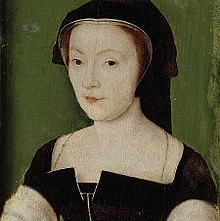
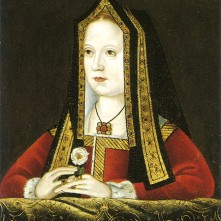

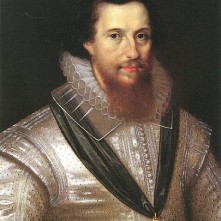

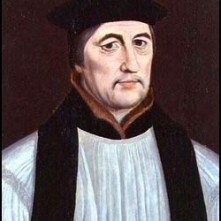
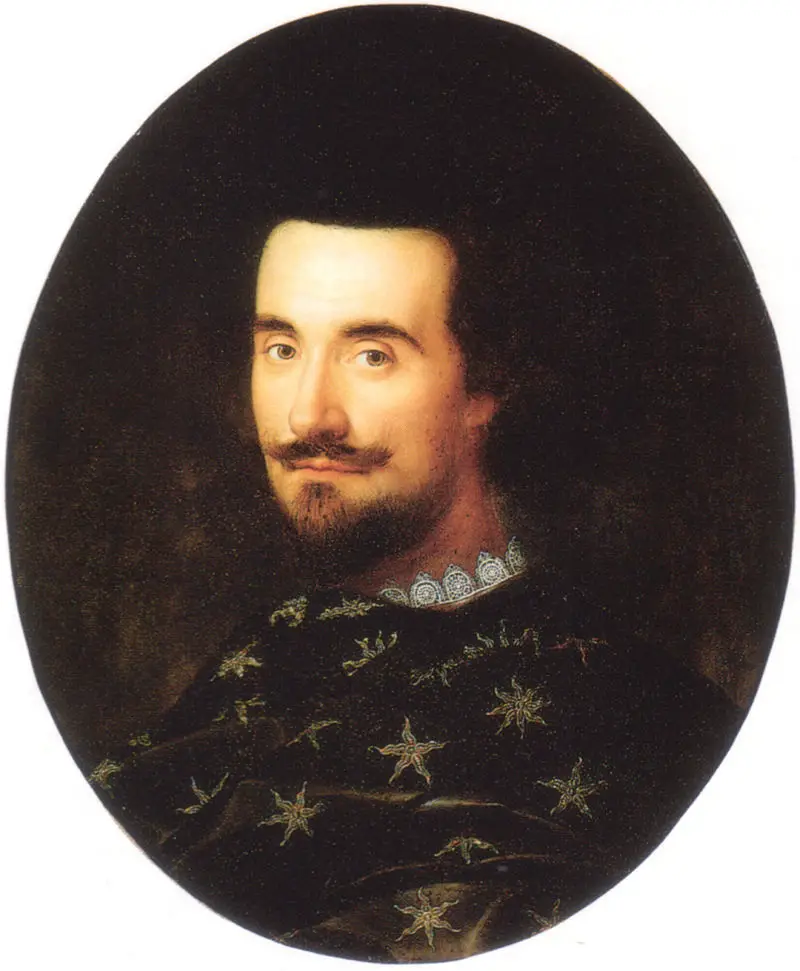
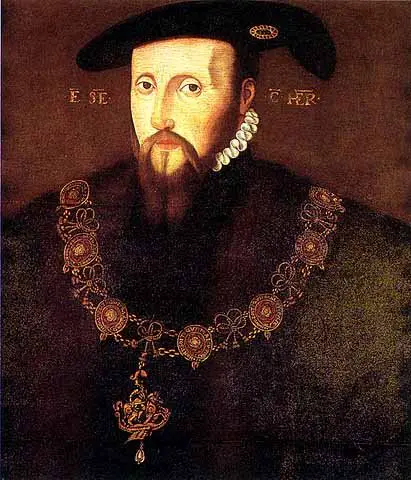
Leave a Reply